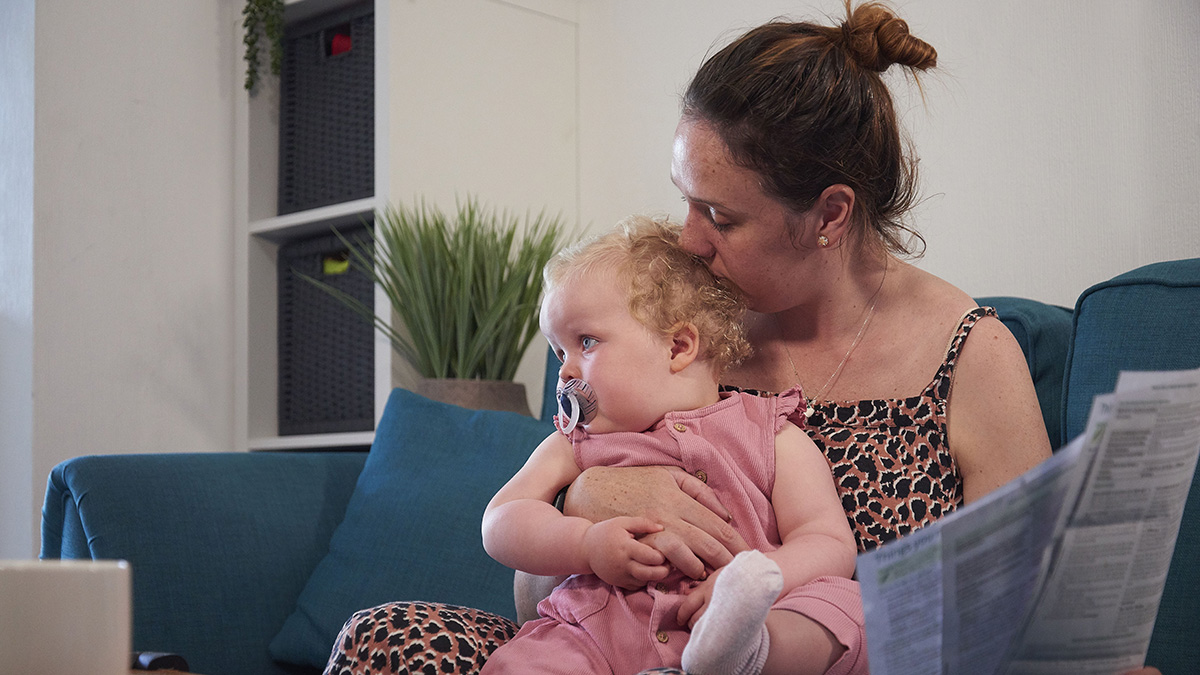Published:

A coalition of children's charities, anti-poverty organisations and campaigners, including Heriot-Watt University, has written to the Chancellor of the Exchequer, Jeremy Hunt MP. They are calling on the UK Government to pause debt recovery for money owed to public bodies across the UK by people on the lowest incomes.
Ahead of the Spring budget at Westminster, the letter urges Mr Hunt to use the budget to support action to tackle the issue of debt to public bodies.
Signatories to the letter include Professor Morag Treanor from the Institute for Social Policy, Housing, Equalities Research, Aberlour children's charity, The Robertson Trust and Poverty Alliance. Together they highlight their alarm at “the increasing level of debt owed to public bodies by the poorest in the UK and the role this plays in trapping people in poverty”.
As the cost-of-living crisis worsens, we are seeing more and more families trapped in a damaging cycle of debt...
They are asking for public bodies in the UK to pause debt recovery for those on the lowest incomes for at least the next six months, to give the poorest households breathing space during the cost of living crisis.
Organisations who have signed the letter say they are seeing increasing demand on their own hardship funds and financial support they provide in order to help those burdened with unsustainable levels of public debt.
These debts typically include council tax charges, Universal Credit advance payments, rent arrears and even school meal debt.
Paying back these debt means households often cannot afford to pay the bills and families are unable to buy the most basic essentials for their children.
Last year, a report written by Heriot-Watt University for Aberlour highlighted the scale of debt to public bodies owed by Scottish families with children in receipt of Universal Credit.
The report found that more than half of families in Scotland with children in receipt of Universal Credit – nearly 80,000 families – have their monthly income reduced by around 10%, equating to £80 on average, as a result of deductions by the DWP to recover debts to public bodies.
A recent study by the Joseph Rowntree Foundation showed that nearly half of households across the UK who receive Universal Credit are seeing their monthly income reduced due to deductions and caps, with as much as 25% of their standard allowance being lost through DWP debt recovery.
A further report published by The Robertson Trust highlighted that those on the lowest incomes are ten times more likely to have council tax arrears than those on the highest incomes.
The letter urges Jeremy Hunt to take the same action that the UK Government took in response to the pandemic in 2020 by implementing a suspension of debt recovery by the DWP for people on benefits.
Aberlour Chief Executive, SallyAnn Kelly OBE, said: “Low income families are in the midst of a debt crisis. Aberlour research has shown that tens of thousands of Scotland's poorest families are seeing their monthly incomes reduced to cover debts to public bodies, including council tax charges, rent arrears and even school meal debt. Low income families are falling deeper into debt as they try to make ends meet. Many are relying on charities and foodbanks just to cover the basic things they need for their children. That's why we are calling for a pause to public debt recovery for families on the lowest incomes to give them breathing space during the cost of living crisis. We need to help those with the least and stop giving with one hand and taking away with the other.”
Professor Morag Treanor from Heriot-Watt University said: “As the cost-of-living crisis worsens, we are seeing more and more families trapped in a damaging cycle of debt from which they have no opportunity to recover. As well as negatively impacting young people, many of whom are struggling to afford basic needs like lunch at school, our findings suggest that this crisis will worsen as food and energy prices remain high. Our report published in November found that over half of families with children in Scotland are trapped in a damaging cycle of poverty because of Universal Credit deductions. With families seeing their monthly income reduced on average by £80 to cover those debts, their financial circumstances are spiralling. By pausing public debt recovery now, we can allow families across the UK to recover, and we'd urge the Government to act now before the situation worsens."